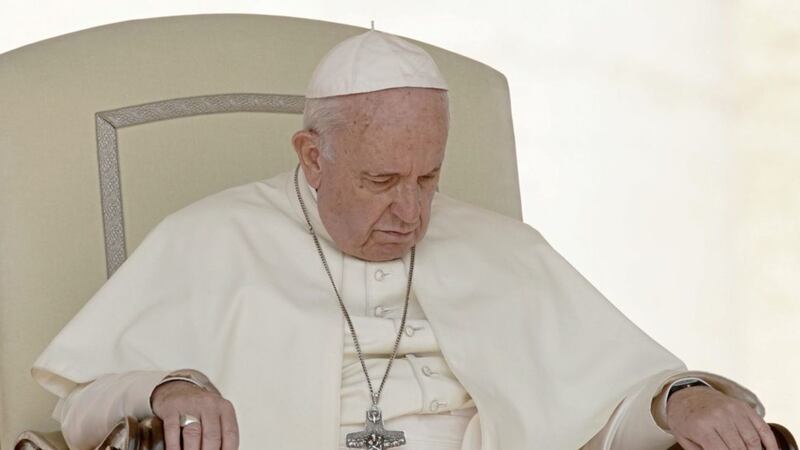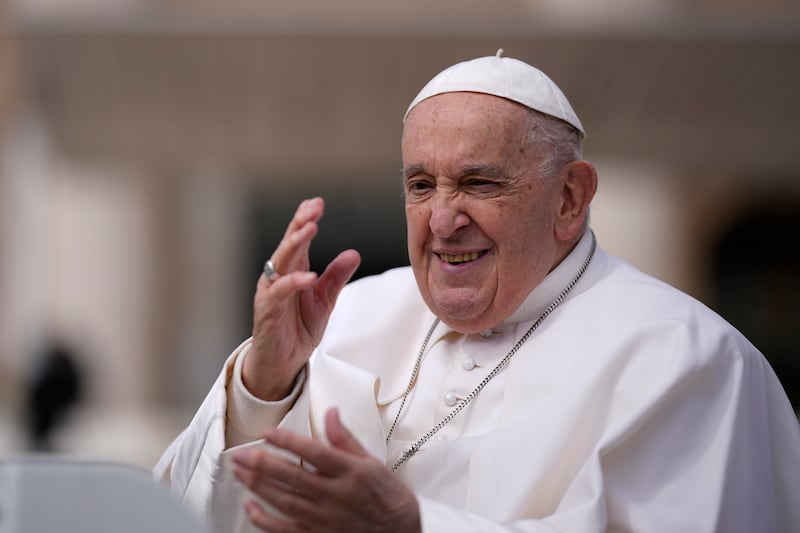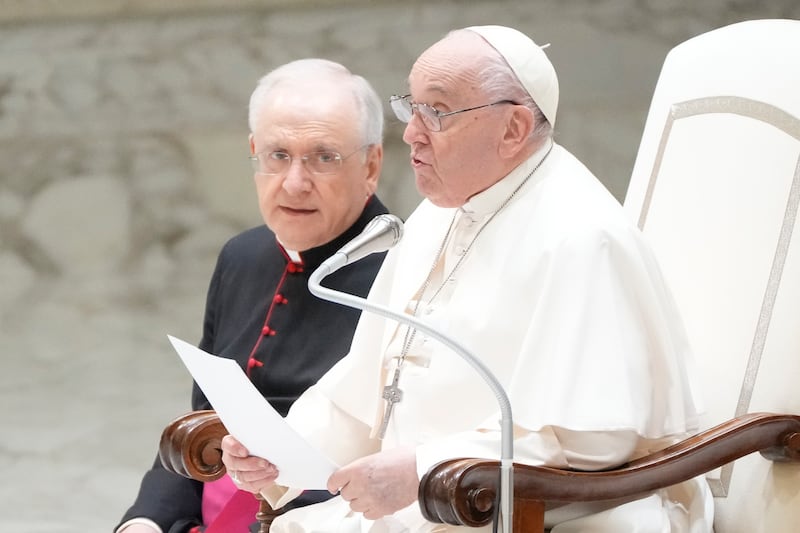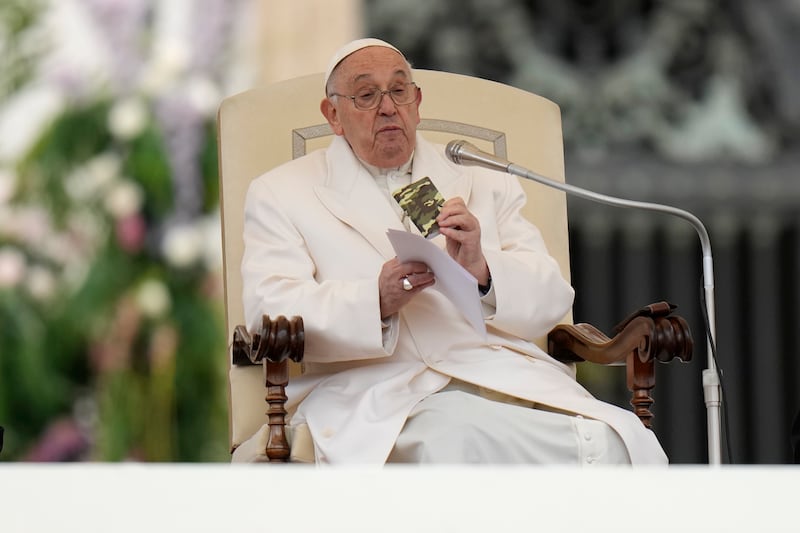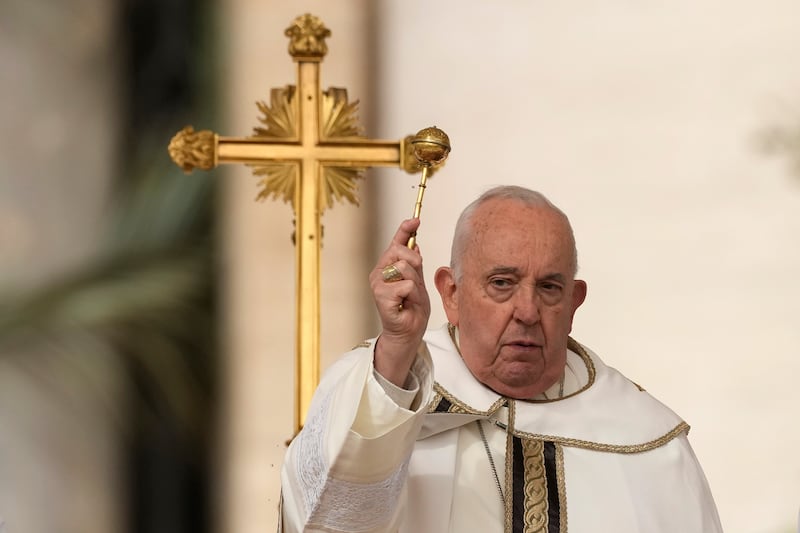FOLLOWING his intense two-day visit to Ireland, Pope Francis's next trip will be a comparatively leisurely four-day pilgrimage to Lithuania, Latvia and Estonia.
The destination may be different, but the same questions that shadowed Francis in Ireland are sure to follow him to the Baltic states when he flies to Vilnius on September 22.
They include those around the Catholic Church's handling of abuse - in all its forms - as well as the issues raised by Archbishop Carlo Maria Vigano, a former Vatican ambassador to the United States, in his contested 'testimony' that Pope Francis was involved in covering up for a former cardinal.
This, declared Archbishop Vigano, meant that the Pope was a hypocrite and should resign immediately.
Opponents of Francis's papacy quickly rowed in behind the allegations.
They are a diverse bunch. They include those who simply dislike his friendly, informal tone and others who are suspicious of his focus on people living on the 'periphery', such as the poor, the homeless and prisoners.
His efforts to reform the Church, while relatively modest, have also met staunch opposition.
The Pope gave the Vigano claims short shrift when quizzed by journalists on the flight back to Rome from Dublin.
The media - and, presumably, anyone else interested in the claims - should test Vigano's allegations, he said.
Then, said the Pope, he might directly address them.
"I read the statement this morning, and I must tell you sincerely that - I must say this, to you and all those who are interested: read the statement carefully and make your own judgment," he said on the Aer Lingus aircraft.
"I will not say a single word on this. I believe the statement speaks for itself, and you have the journalistic capacity to draw your own conclusions.
"It is an act of faith. When some time passes and you have drawn your conclusions, I may speak.
"But I would like your professional maturity do the work for you. It will be good for you."
The former cardinal at the heart of Archbishop Vigano's self-described testimony is Theodore McCarrick, a one-time Archbishop of Washington DC.
Pope Francis removed McCarrick as a cardinal in July after a US Church investigation found a "credible and substantiated" allegation that he had sexually abused a teenager in the 1970s. The Pope has ordered McCarrick to live a life of prayer and penance in seclusion.
The McCarrick story was followed in August by appalling revelations contained in a grand jury investigation into abuse in Pennsylvania.
It alleged that more than 300 priests had abused more than 1,000 victims in the state over the course of 30 years.
The true number of victims was far higher, said the investigators, who also pointed out that their investigation covered only six of the near-200 Catholic dioceses in the US.
There were echoes of the Irish experience in all this, too, when Pennsylvania state Attorney General Josh Shapiro said the report detailed "systematic cover-up by senior Church officials in Pennsylvania and at the Vatican".
The World Meeting of Families in Dublin - the event which occasioned the Pope's visit to Ireland - became caught up in the developing scandal in the US.
Cardinal Donald Wuerl, who had been due to give a keynote address, was heavily criticised in the Pennsylvania report for his poor handling of abuse allegations and withdrew from the WMOF.
Given Ireland's unique experiences, it was already unthinkable that the Pope would not confront abuse during his visit; as the US story gained momentum in the days ahead of his arrival in Dublin, that expectation only intensified.
Francis valiantly and sincerely kept the family high on his agenda - in his remarks at the Festival of Families, for example, and his comments on marriage in the Pro-Cathedral - but balanced this with acknowledging the devastation of the abuse scandals.
A 90-minute meeting with a range of abuse survivors, as detailed in last week's Faith matters, was well received. As Fr Patrick McCafferty, a Belfast priest present at the encounter said, the Pope took "ownership" of the abuse issue.
The next day, at the penitential act at the Mass celebrated in Phoenix Park, Pope Francis read from a handwritten page: "Yesterday I met with eight persons who are survivors of the abuse of power, the abuse of conscience and sexual abuse.
"In reflecting on what they told me, I wish to implore the Lord's mercy for these crimes and to ask forgiveness for them..."
Repeatedly, the Pope asked for forgiveness.
Francis has admitted he has made mistakes in how he has handled abuse in the past - around his visit to Chile earlier this year, for example.
But the Archbishop Vigano allegations are different in that through the McCarrick case, they seek to personally draw Francis into the familiar pattern of collusion and cover-up.
McCarrick's abuse of seminarians was apparently an open secret, as was the way he would bring his victims to his New Jersey beach house.
Vigano alleges that Francis knew of McCarrick's behaviour from as early as 2013, when he became Pope.
Further, Vigano claims that Pope Benedict XVI had imposed sanctions on McCarrick in 2010 or 2011 - he is imprecise on the date - but that Francis nonetheless ignored them.
Francis's opponents draw a veil over how Benedict did not enforce the alleged sanctions, or refuse to address why Pope John Paul II also failed to do anything about McCarrick's crimes.
Perhaps the furore around the Vigano letter says more about the febrile atmosphere in the Catholic Church at present than the substance of the rambling allegations themselves.
With Francis thus far not directly addressing Vigano's claims, we are left to read between the lines of what he has said since returning to Rome from Ireland.
On Monday, in his homily at his Domus Sanctae Martae, where he lives in the Vatican, he said: "With people who lack good will, with people who only look for scandal, who solely seek division, who are just after destruction, even in families: silence and prayers."
One doesn't need to have too vivid an imagination to think that the Pope did in fact have his many opponents in mind - though while undoubtedly powerful, it may take more than "silence and prayers" to see his papacy through its thorniest patch yet.
